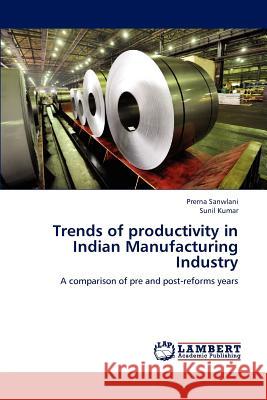Trends of productivity in Indian Manufacturing Industry » książka
Trends of productivity in Indian Manufacturing Industry
ISBN-13: 9783659139987 / Angielski / Miękka / 2012 / 60 str.
Starting in the late 1970s, the Indian authorities implemented a series of reforms aimed at exposing the economy to greater competition and at liberalizing key aspects of economic activity. This paper compares productivity trends in Indian Manufacturing sector, pre and post reforms years. Using the data from Annual Survey of Industries, the entire study period (1973-74 to 2004-05) is divided into two sub-periods: pre-reform period, i.e. 1973-74 to 1990-91, and post-reform period, i.e. 1991-92 to 2004-05. Using the Malmquist Productivity Index to measure Total factor Productivity growth in Indian Manufacturing, the results show that liberalization has had a negative impact on the productivity of the Indian Manufacturing sector at aggregate as well as disaggregate level.
Starting in the late 1970s, the Indian authorities implemented a series of reforms aimed at exposing the economy to greater competition and at liberalizing key aspects of economic activity. This paper compares productivity trends in Indian Manufacturing sector, pre and post reforms years. Using the data from Annual Survey of Industries, the entire study period (1973-74 to 2004-05) is divided into two sub-periods: pre-reform period, i.e. 1973-74 to 1990-91, and post-reform period, i.e. 1991-92 to 2004-05. Using the Malmquist Productivity Index to measure Total factor Productivity growth in Indian Manufacturing, the results show that liberalization has had a negative impact on the productivity of the Indian Manufacturing sector at aggregate as well as disaggregate level.











